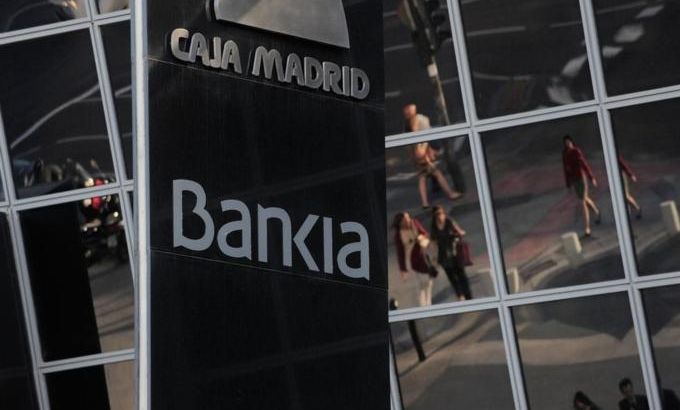Spain to decide fate of banks in two weeks
Finance minister says plan on how to find $100bn needed for bank recapitalisation will come in “approximately 15 days”.

Spain will decide how to fill an $100bn gap in the country’s bank finances within two weeks, the country’s finance minister has said.
In Brussels for talks on Wednesday, Luis De Guindos said that Spain “will take decisions on recapitalisation within approximately 15 days”.
Keep reading
list of 4 itemsBoeing hit with 32 whistleblower claims, as dead worker’s case reviewed
US imposes new sanctions on Iran after attack on Israel
A flash flood and a quiet sale highlight India’s Sikkim’s hydro problems
Worries were mounting over Spain’s finances, with the country needing help to find $100bn for bank recapitalisations in the midst of a deep recession brought on by the bursting of a property bubble.
“The Spanish bank problem is limited to certain entities which have already been treated and brought under check” by the government, De Guindos said.
He said there were no discussions with eurozone partners about their furnishing aid to the Spanish banks, a day after Spain’s King Juan Carlos asked Europe for “solidarity”.
‘Up in the air’
Al Jazeera’s Paul Brennan, reporting from Paris, said the possibility of European aid for Spain was still “up in the air”.
“What the Spanish government is doing is almost playing a double game,” he said.
“On the one hand, the Spanish prime minister [Mariano Rajoy] has explained the situation as ‘extreme difficulty’. At same time, De Guindos has been adamant that there will be no formal request for bailout fund for at least the next two weeks.
“Many regard a bailout for Spain as inevitable, but the Spanish are now doing the rounds, trying to stave off that possibility.”
The IMF will report on the state of Spain’s banks on June 11, with separate studies by outside consultants including the world’s biggest firms of auditors also due over the following week and months.
The anti-corruption unit of Spain’s public prosecutor’s office on Wednesday opened an investigation into bailed out bank Bankia.
Bankia, which was listed last year, last month requested $23.75bn in state aid. Small shareholders in the company have seen their investment almost wiped out.
The investigation marks an escalation of the backlash against the bank’s bailout, until now spearheaded by small shareholder groups.
Amadeu Altafaj, spokesman for EU economic affairs commissioner, said discussions between the European Commission and Madrid on specific actions would follow “only after that”.
“There is a clearly defined roadmap for the financial sector in Europe,” De Guindos said.
Public deficits
De Guindos echoed Rajoy’s remarks to Spain’s parliament on Tuesday, saying there was “no other option but to move towards greater banking integration”, a so-called eurozone banking union.
Rajoy also said on Saturday that Spain was willing to give up some budgetary sovereignty to achieve this goal.
Spain wants the EU to allow the European Stability Mechanism bailout fund, due to come into force in the coming weeks, to recapitalise its banks directly after a property boom went bust and deep recession set in.
Germany reiterated on Wednesday that only governments can apply for cash from the European bailout funds to recapitalise banks and that lenders cannot directly seek aid.
Markets increasingly expect Spain to need an international lifeline because it cannot raise the huge sums required to rescue its bad loan-ridden financial sector.
Spain faces soaring borrowing rates on bond markets, which are wary of the cost of bailing out banks and pessimistic about the state’s struggle to rein in public deficits at a time of recession and high unemployment.